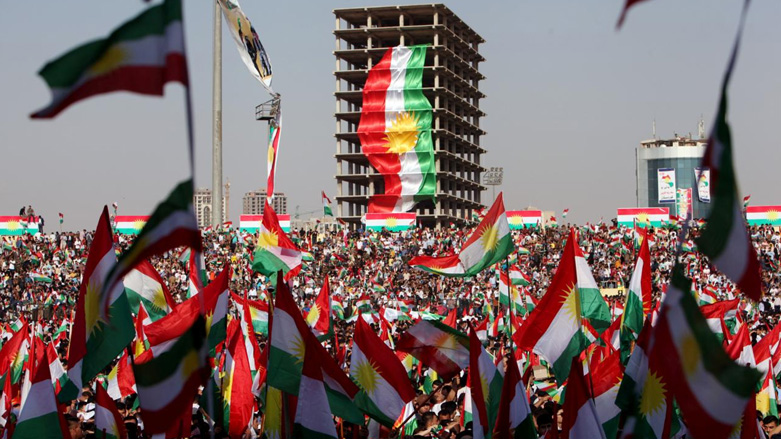US needs to support Kurds in Iraq and Syria: Former Pentagon Official

WASHINGTON DC (Kurdistan 24) - “The United States needs to support the Kurds both in Iraq and Syria,” Dr. Michael Makovsky told Kurdistan 24 last week.
Makovsky served in the Pentagon during the George W. Bush administration as special assistant in the Office of the Secretary of Defense.
On Wednesday, as President and CEO of the Jewish Institute for National Security of America (JINSA), Makovsky hosted US Secretary of State, Mike Pompeo, who addressed the JINSA audience.
Before Pompeo’s speech, Kurdistan 24 spoke with Makovsky, who explained that the US needs “to support the Syrian Kurds.”
They should have “at least autonomy, if not independence,” he affirmed, and if necessary, “we should offer them protection against the murderous” regime of Bashar al-Assad.
Makovsky spoke similarly about the Kurds in Iraq. An “American military base in Kurdistan,” he suggested, “would be very useful.”
Asked if it was important for the US to support Iraq’s Kurds against any unknown, future plans from Tehran or even Baghdad, Makovsky agreed without hesitation, explaining, “the Kurds are our allies.”
“They have been our most dependable allies,” he continued, noting that they had been “willing on the ground to fight [the Islamic State (IS.)]”
However, Makovsky added some friendly advice. “The Kurds need to work more together,” he said, citing “the problems we had last October,” when Iranian-backed forces took Kirkuk.
“There were divisions within the Kurdish community,” Makovsky noted, and “that was very unfortunate.”
Makovsky suggested that the Kurds were an essential element in blocking Iran’s “land bridge” to the Mediterranean.
He praised the Trump administration for its decision not to remove US Special Forces from eastern Syria, “because it is a very important location for disrupting” the corridor that Tehran would like to establish westwards.
Makovsky stressed, above all, “The United States needs to support our allies that are on the front lines against the Iranians, and that’s the Israelis and the Kurds.”
Pompeo later addressed the JINSA audience, and after delivering his prepared remarks, he sat down to answer a few questions from Makovsky.
What is our policy on the “Syrian Kurds who have been our allies against [IS]?” Makovsky asked.
“We’ve worked closely with the Syrian Kurds now for my entire time in service in this administration,” Pompeo replied. Before becoming Secretary of State in April, Pompeo was the Trump administration’s CIA Director.
“They have been great partners,” he continued. “We are now driving to make sure that they have a seat at the table.”
Pompeo explained that the US was demanding that “every element in Syria gets an opportunity to be part” of that country’s future government.
“Absent that, and in the absence of [Kurdish] representation, we won’t participate in what will be a big check that someone’s going to have to write to fix the situation in Syria,” Pompeo concluded, “and the Syrian Kurds will surely be part of that.”
Pompeo’s Special Representative for Syria Engagement, Amb. James Jeffrey, left Washington on Monday for Turkey, as well as Qatar and Saudi Arabia, for talks about Syria.
In Turkey, Jeffrey is to meet with “government officials, Syrian opposition leaders, and Syrian civil society groups,” the State Department explained in a press statement.
He will “reaffirm” the US “commitment to achieving a political solution in accord with UN Security Council Resolution 2254,” with the goal of “a secure, stable, and pluralistic Syria,” which “removes all Iranian-led and Iranian proxy militias” from the country, the State Department affirmed.
“Throughout his trip,” Jeffrey “will seek to meet representatives of the Syrian people and reiterate to them our full support” for Resolution 2254, and UN Special Envoy de Mistura’s efforts to stand up the Syrian Constitutional Committee “as quickly as possible.”
Editing by Nadia Riva
